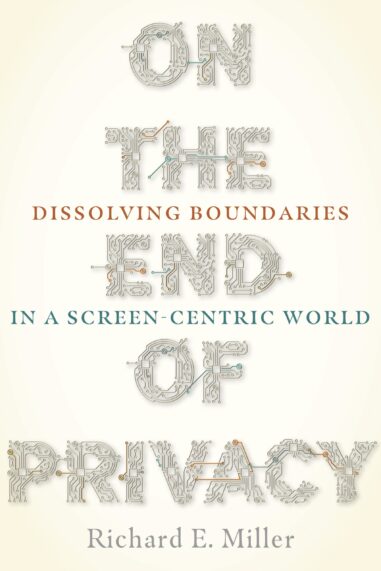
Paperback $35.00
Request Exam or Desk Copy. Request Review Copy
On the End of Privacy
Dissolving Boundaries in a Screen-Centric World
This brilliant book asks profoundly disturbing questions. How might we read and write, think and live when never-disappearing textual selves circulate wildly? How might we teach and learn when screens—and their embodied knowledges, half-truths, and malevolencies—are utterly ubiquitous, endlessly connectable? Miller lucidly stories his way toward answers, braiding narratives that enact as provocatively as they evoke.

